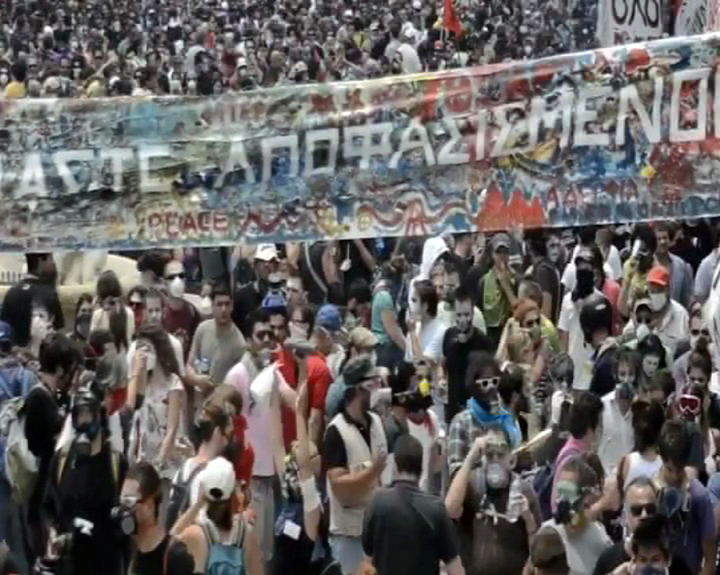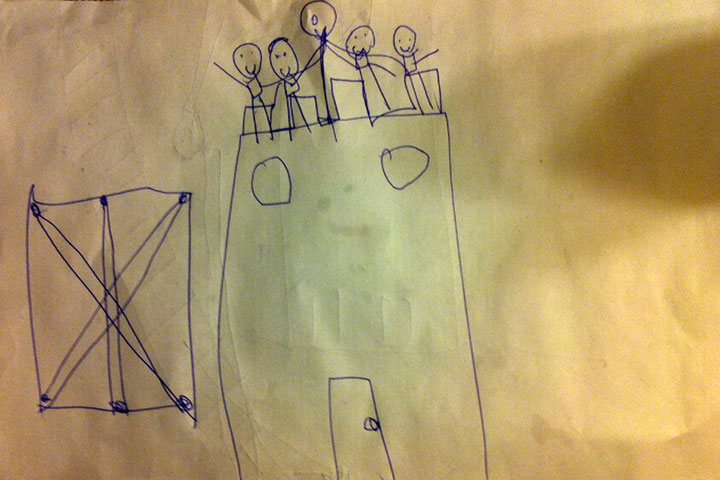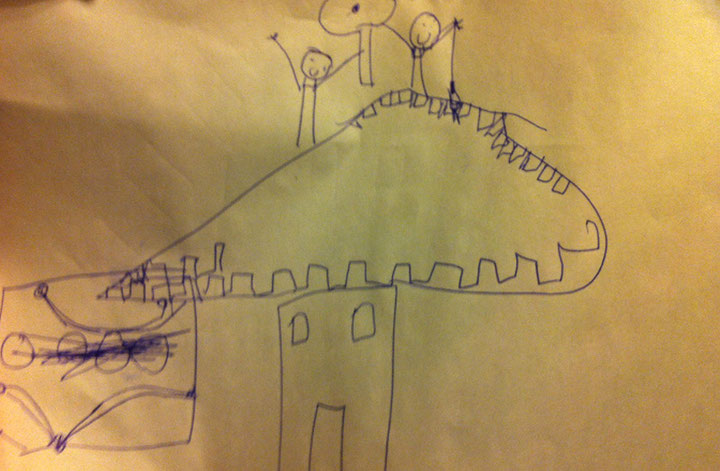Greece is going through the 6th year of recession. Austerity policies imposed by IMF, ECB and the Greek political pro-memorandum regimes, foster an unprecedented crisis in economy, social life, politics and culture. In the previous two decades the enforcement of the neoliberal politics to the country resulted in the disintegration of the existed social networks, leaving society unprepared to face the upcoming situation. During the last years, while large parts of the social fabric are expelled from the state and private economy, through the social movements which emerge in the middle of the crisis, formations of physical and digital networks appear not only to official politic and finance circles, but also as grassroots forms of coexistence, solidarity and innovation. People come together, experiment in unconventional ways of collaboration and bundle their activities in different physical and digital networks. They seek answers to problems caused by the crisis, but they are also concerned about issues due the new technical composition of the world. In doing so they produce and share knowledge.
Which are the characteristics of these uprising communities? Which are the differences between networks created in a country that crosses its worst period since the civil war, and other European countries not (yet?) hit by a form of “doctrine of shock”?
A basic characteristic that one can detect in most of these communities of knowledge production is that the reason for which they operate collectively is rather a collective logic, spirit and practice towards a material target –often related with crisis’ problems-. In other words, a materiality of aims, that the use of digital networks and Internet facilitates their achievement, shifts the focus from the technical possibilities and challenges of the networks and Internet.
Taking as an example the Digital Liberation Network (DLN), a network formed after the revolt of December 2008, we read in their declaration:
“ The struggle for the expansion of digital freedom should be part of radical politics constantly seeking for direct, horizontal democracy. But it must be constructed from bottom to top, must dispute the private and state infrastructures, the corporation policies, even these of “ally companies” for the free Internet development and must hold a critical stance against the ideological and political contexts, which are structurally embedded in the practical use of the Internet.”
It is a fact, that during the period of the massive protests at the squares, the movements created their own wireless infrastructures, on which they build structures of direct digital democracy and they used information science and Internet as a means for political struggle and not as an aim in it self.
It is also true, despite the fact that a part of the Greek society pays poor attention to the post-Snowden era, another part, especially those engaged in social and political struggle, are very much aware of the consequences of state and corporate surveillance in the global and local sphere.
Even before the crisis, during the events of December 2008, protesters learned very well in vivo, that digital surveillance and police oppression go hand by hand.
In the following years, during the massive protests against the austerity measures, the issue of effectiveness and the limits of digital activism set central in movement’s discourses. The awareness and the tactics the movements should develop regarding surveillance and control, the comprehension of the architecture of participation in social media and the critic on digital networks resulted –at least for those engaged- in: We should seriously consider, that what is at stake here is a struggle against the political forms of a state responsible as a whole for its economic and national strategies and choices. In other words, digital struggles are political struggles that have direct social influence and meaning and they cannot be perceived separated from the “social issue”.
In a country where unemployment reaches 30% in all ages and genders and among the young overpasses the 50%, immediate solution for the “social issue” is more than urgent. Communities that produce cognitive and cultural commons combine them -or try to- with production of common material goods, spring up in different regions.
V. Kostakis is a member of P2PLab, an independent media lab interested in interdisciplinary research on free/open source technologies and practices, that provide consultancy support to organizations and institutions regarding open technologies and relevant socio-economic trends. The lab is situated in Ioannina town, at the Northwest part of Greece.
The P2PLab community defines their goals as strive for integrative insights on the open technologies and the peer-to-peer practices, and. Kostakis resumes the phenomenon of communities’ explosion in Greece in the following questions:
“The free/open source software and design communities; the hackerspaces and the do-it-yourself enthusiasts; the movements for an independent Internet; the initiatives for free/communal wifi and open access to knowledge; the resilient/permaculture communities... What do all these have in common? Are they unrelated cases or coincidences? Or could they be seen as seeds of a new civilization full of contradictions and chances for renaissance and change?”
P2PLab is one example of the communities that try to adapt global techno-economic solutions to local problems. They perceive the network with locals as: “people think tank”. At this moment they plan the project COFARMIN whose ultimate goal is to develop infrastructures for an innovative-driven, resilient and social-oriented productive paradigm which builds on the intersection of the distributed technologies with the peer produced knowledge Commons.
“The poor regions are arguably in need of the most technologically advanced and socially sophisticated solutions. Hence, we decide to develop our cases in two of the poorest peripheries of the EU: Epirus, Greece and Estonia.
Farming is not only the basis of the economy in the aforementioned places, but also a field in which peer production efforts have already produced real, ready-to-apply open hardware solutions.”
Sarantaporo area, situated at the North of Greece, is an agricultural and husbandry region, also hit by the crisis. Even prior to the crisis, state’s attention to the area was poor. Youths were migrating to big cities, or abroad. There was no Internet connection, and locals were isolated and deprived of basic services, e.g. medical aid. At 2010 a group of people forms a community wireless network aiming to connect the villages among them and with the rest of the world.
They state: “Our project is about creating a wireless networking infrastructure as a commons and building a community around it. It is not just about bringing the Internet to remote areas. Locals are already participating in and are offering their premises for infrastructure deployment, forming local support groups in which they organize their participation, acquiring knowledge, skills and expertise on deploying and maintaining this infrastructure. Through our experience, we aim to create a model not only for deploying, operating and expanding wireless community networks, but also for community building, tackling all relevant legal, organizational and financial issues.”
Sarantaporo.gr community aims even further. They want to be the catalyst so that the locals (re)organize cooperatives based on the wireless network, (re)enliven their economy, make it sustainable and independent of state and corporative control.
In respect to the European social networks -physical and digital- one could observe that the dominant rhetoric of neoliberal politics, which divided Europe in two zones: the “fair north” and the “filthy south”, created similar analogies to the movements themselves. In countries that still remain “untouched” by the austerity politics, criticism on realms as DIY culture, media culture, networking organization is -with few exceptions- institutionalized, residing into theory fields. In contrast, in southern European countries like Greece, the lack of institutions, or the unwillingness to collaborate with them, the omnipresence of direct state oppression and above all the emergency of taking direct action into the social, gives birth to other perspectives and approaches. Will that create an enriched new field of theory-in-practice in the continent? Will that foster a new political ground? Or is it a sign of an upcoming balkanized future for movements and society? It remains to be seen.


